These are the top five books to begin an exploration of anticolonialism in the twentieth century, from South Asia, Africa, and the Caribbean. You can also find a crash course on anticolonialism (historical and theoretical) here.
1
M.K. Gandhi's famous anticolonial dialogue, written in seven days and published serially in 1909, remains one of the most provocative refutations of British colonialism in India. It also offers serious reflections on how to 'properly' achieve self-rule, and is the beginning point for what would become Gandhi's complicated philosophy of non-violence.
2
Written as he was dying in 1961, this is Fanon's most urgent call for the end of French colonial rule, as well as for the end of domination by Europe over the rest of the world. The most famous chapter, 'Concerning Violence' is an extended meditation on the benefits and dangers of violent anticolonial action. The other chapters are often overshadowed but equally important, each charting a path out of a colonialist, Cold War world.
3
Césaire's poem, especially in this new translation, is a breathtaking account of the rage, suffering, and alienation that European colonialism has produced. The poem moves frantically between anxiety, anger, and resignation, but it is ultimately a rallying cry for decolonisation.
4
B.R. Ambedkar was a Dalit ('untouchable') leader and anti-caste activist. He is famous for having drafted the Indian Constitution, but this 1936 tract (based on 'an undelivered lecture') is Ambedkar's masterpiece. While many Indian anticolonial thinkers wanted to wait until after independence to dismantle the caste system, Ambedkar argues that, on the contrary, the annihilation of caste is necessary to imagine an 'Indian nation' at all. In other words, anticolonialism was insufficient unless it could address related hierarchical injustices, like caste and gender. Ambedkar was in conversation with thinkers like W.E.B. Du Bois and John Dewey, and the sophistication of his sociological thought is on full display here.
5
At first glance, this book is a detailed history of Haitian revolutionary Toussaint L'Ouverture (1743-1803). But James's meticulous account of the Haitian Revolution (1791-1804) reveals that it is the Haitian Revolution that more fully realises the goals and ideals of the French and American Revolutions -- even though these revolutions retain the spotlight. James's heroic account of L'Ouverture re-situates the revolutionary leader as the proper actor of ideals like equality, fraternity, and liberty. Nevertheless, James's account is as tragic as it is celebratory: while it reinvigorates anticolonial activism in the twentieth century, it remains wary and pessimistic of its success or outcomes.
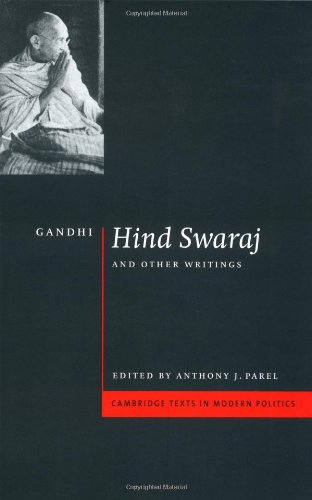
1
M.K. Gandhi's famous anticolonial dialogue, written in seven days and published serially in 1909, remains one of the most provocative refutations of British colonialism in India. It also offers serious reflections on how to 'properly' achieve self-rule, and is the beginning point for what would become Gandhi's complicated philosophy of non-violence.
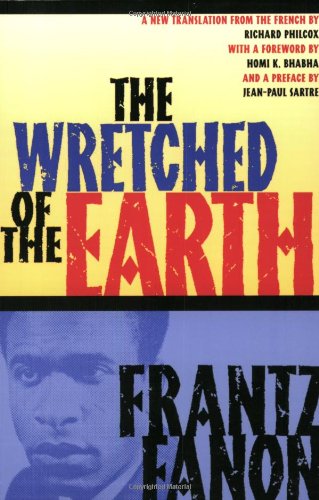
2
Written as he was dying in 1961, this is Fanon's most urgent call for the end of French colonial rule, as well as for the end of domination by Europe over the rest of the world. The most famous chapter, 'Concerning Violence' is an extended meditation on the benefits and dangers of violent anticolonial action. The other chapters are often overshadowed but equally important, each charting a path out of a colonialist, Cold War world.
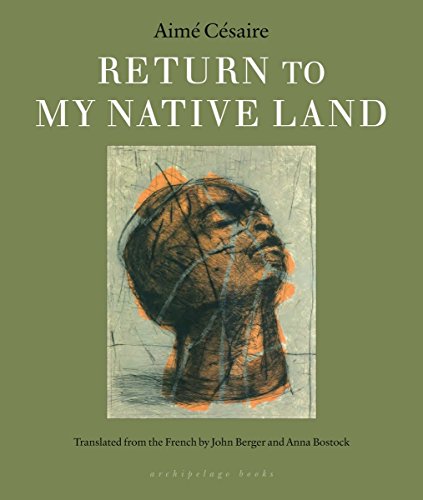
3
Césaire's poem, especially in this new translation, is a breathtaking account of the rage, suffering, and alienation that European colonialism has produced. The poem moves frantically between anxiety, anger, and resignation, but it is ultimately a rallying cry for decolonisation.
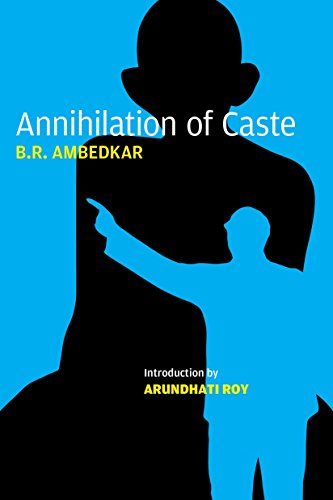
4
B.R. Ambedkar was a Dalit ('untouchable') leader and anti-caste activist. He is famous for having drafted the Indian Constitution, but this 1936 tract (based on 'an undelivered lecture') is Ambedkar's masterpiece. While many Indian anticolonial thinkers wanted to wait until after independence to dismantle the caste system, Ambedkar argues that, on the contrary, the annihilation of caste is necessary to imagine an 'Indian nation' at all. In other words, anticolonialism was insufficient unless it could address related hierarchical injustices, like caste and gender. Ambedkar was in conversation with thinkers like W.E.B. Du Bois and John Dewey, and the sophistication of his sociological thought is on full display here.
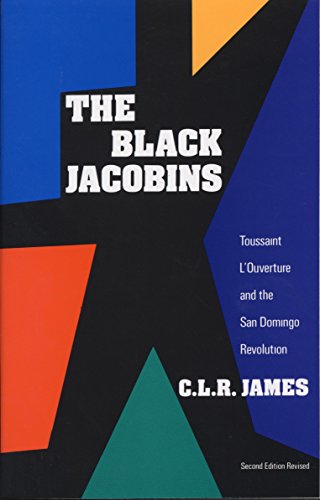
5
At first glance, this book is a detailed history of Haitian revolutionary Toussaint L'Ouverture (1743-1803). But James's meticulous account of the Haitian Revolution (1791-1804) reveals that it is the Haitian Revolution that more fully realises the goals and ideals of the French and American Revolutions -- even though these revolutions retain the spotlight. James's heroic account of L'Ouverture re-situates the revolutionary leader as the proper actor of ideals like equality, fraternity, and liberty. Nevertheless, James's account is as tragic as it is celebratory: while it reinvigorates anticolonial activism in the twentieth century, it remains wary and pessimistic of its success or outcomes.
© Five Books 2026